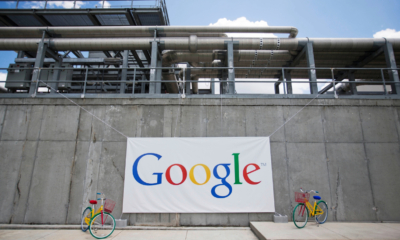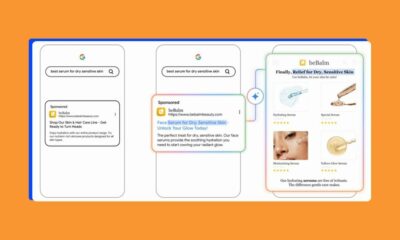MARKETING
The Ultimate Guide to Relationship Marketing

Did you know that customer retention has been found to be even more critical to your company’s success than customer acquisition? Frederick Reichheld of Bain & Company found as little as a five percent increase in customer retention can result in an increase in company revenue by 25-95%.
In fact, no matter if you’re a team of one or leading a scaling enterprise, you can build customer relationships with your existing audience without the typical costs associated with acquiring new customers. The key is strategic relationship marketing.
What is relationship marketing?
Relationship marketing refers to the marketing strategy of cultivating more meaningful relationships with customers to ensure long-term satisfaction and brand loyalty. Relationship marketing isn’t about short-term wins or sales transactions — instead, it focuses on delighting customers for the long haul.
Especially since, as Adobe learned, returning customers spend more than newer customers. Why? Because existing customers understand the value of your products and services and they’re invested loyally in your brand. If a customer feels satisfied with their interaction with you, they’re more likely to turn to your business for their needs, again and again.
“But isn’t all marketing relationships marketing?” Not exactly. Some marketing strategies are solely about gaining traffic and conversions to get potential customers into the customer flywheel. From there, you’ll have even more marketing tactics that get that potential customer to make their first purchase like customer acquisition.
The perfect time to start a relationship marketing strategy is when the customer has made a purchase (or several). Your goal with relationship marketing is to get these new customers to become brand-loyal patrons of your business. To do that, you’ll want to take a personalized approach to client retention and become integrated into their lives in a way that feels natural and genuine.
What are the benefits of relationship marketing?
Like many forms of white-hat marketing tactics, there are various benefits to leveraging relationship marketing strategies for your brand. But, when properly executed, the most impactful ways to improve your business through relational advertising include:
So, let’s take a look at some relational advertising examples from firms that adopt a relationship marketing strategy to attempt to retain existing customers. Then, we’ll explore how you can implement a strong relationship marketing strategy today.
Relationship Marketing Examples
- Capital One
- Delta
- Fairway Independent Mortgage Corporation
- Fenty
- GE
- Domino’s
- Panera
- Marriott
- ArmorSuit
1. Capital One

Capital One understands its customers deeply — all the way down to the small inconveniences that plague them most. One of those annoyances is the long TSA line at the airport.
Capital One reimburses all venture cardholders up to $100 when they pay the TSA PreCheck fee. All they have to do is pay for it with their Capital One credit card.
TSA PreCheck expires after five years, and this benefit applies every time the cardholder wants to renew their PreCheck status. Here, Capital One is demonstrating its brand value to its current audience through:
- Offering a perk that’s universally appealing to their base — free money
- Mitigating a prevalent issue customers face with a long-term resolution
This benefit speaks to a relevant pain point for Capital One customers and makes keeping an account open with Capital One well worth it in the long run.”font-size: 1.5rem; font-weight: 500;”>
2. Delta

Speaking of TSA lines, as the oldest operating airline in the United States, Delta, is no stranger to relationship marketing strategies that preserve the brand loyalty of their customers.
One of their most effective methods remains the airline’s customer loyalty program, the SkyMiles program. Customers who sign up for this program earn “miles based on the amount of money they spend with Delta, which can then be redeemed for future travel purchases like airfare, seat upgrades, and more.
To expand their miles offering, they’ve also partnered with credit card companies like American Express to offer bonus miles and accruement when customers use their SkyMiles credit cards to make purchases. In fact, if you qualify for the Amex Reserve card you will also receive complimentary access to the Delta Sky Club. Within this lounge, you can enjoy unlimited free meals, snacks, and drinks on the day you take a Delta flight.
By employing these relationship marketing strategies, Delta has been able to:
- Build a loyal customer base that continues to choose them over competitors
- Seamlessly integrating their business into the lives of their customers through platforms they utilize daily
As a result, their marketing strategy is paying off — they were recently ranked number 1 by J.D.Power for customer satisfaction across North American airlines.
3. Fairway Independent Mortgage Corporation

Buying a home is one of the most important decisions a consumer can make. During the purchasing process, buyers typically shop around for the lowest rate, but they’re also shopping for a reliable team that will make the process as smooth as possible.
Fairway Independent Mortgage Corporation is a great example of a business that takes the relationship marketing approach for its customer retention plan. For example, I received a birthday email from Fairway when I needed to make a lending decision.
In addition to that, the loan consultant was sure to send over some marketing documents with their value proposition and benefits for me as a buyer. Their relationship marketing strategies improved my experience as a consumer by:
- Retargeting audiences via email on a major life event like a birthday
- Enforcing their service offering with valuable supporting documents
Their retention strategies show that the company is committed to being responsive, respectful, helpful, and most importantly — closing on time. This is a recipe for success in the mortgage industry as referrals are the “bread and butter of any successful loan officers business.”
4. Fenty
When international singer and actress Rihanna made her professional pivot to a businessperson in the Fashion & Beauty industry, the “Talk That Talk” vocalist had also kept people talking about what would come of her brand, Fenty, once it made its debut.
Well in a market already saturated with celebrity beauty and fashion ventures, Fenty distinguished itself to the point of changing the industry landscape through inclusivity. But how? Amongst many examples of marketing strategy, Fenty’s relational advertising tactics remain supreme.
For instance, the popular Fenty Beauty foundation includes shades such as “Vanilla” capturing some of the palest tones, and “Espresso” embracing some of the deepest. At the same time, her Savage X Fenty lingerie sends messages of size inclusivity and body positivity to their customers through the wide range of sizes (from XS to 4XL) they offer to all. Models and celebrities of all shapes and sizes model the clothing during the Savage X Fenty Show streamed on Amazon.
Customers are also able to sign up with a membership program that allows customers to get first dibs on product launches, exclusive content, and access to VIP-only sales. By applying these strategies for customer retention, Fenty has been able to:
- Presenting the brand as a solution and product for all through inclusivity
- Showcasing their messaging globally to connect with consumers across borders
By sending an impactful brand message to their audience, that they back up with their product offerings, Fenty is able to stand out from the crowd and create its own.
5.GE

Relational advertising is ultimately about offering both new and existing customers valuable content regardless of where they are in the buyer’s journey.
GE does a great job of diversifying its content– and the platforms on which it promotes– to ensure its examples of relationship marketing strategy satisfy as many people as possible. For instance, GE created two sponsored podcasts in the sci-fi genre. It seems strange, but GE positions itself as an “inventor of the future of industry,” so it makes sense that the company might dabble in the world of what-ifs in the sci-fi genre.
Additionally, the company has a popular YouTube channel that features historic, innovative stories from the perspective of GE employees. This is because good relationship marketing should appeal to the first-time viewer as powerfully as it appeals to your long-term customers to ensure your customers grow with you over time.
By consistently offering a diverse range of quality content, GE shows its desire to satisfy its long-term customers even at the expense of short-term wins.
6. Domino’s
In the past couple of years, Domino’s has taken its fair share of risks with its relationship marketing strategy for the sake of innovation and improvement. This includes a series of ads called Pizza Turnaround, in which they showcased a series of negative customer reviews, before promising a new and improved recipe.
These self-deprecating ads appeal genuinely to viewers but go against any traditional sales playbook… which is why they work. By admitting an area of opportunity, Domino’s re-invented its brand as transparent and honest — and who wouldn’t want to buy from a company like that?
Domino’s has also done a fantastic job tapping into its digital audience. In fact, 70% of Domino’s sales are now through digital channels.
Ultimately, Domino’s has taken innovative steps to cultivate a loyal, long-term customer base through:
- Slowly and strategically re-inventing their product and their brand
- Engaging with their customers on their favorite digital platforms
Plus, the best part is you can too.
7. Panera
 Panera’s commitment to health and convenience has resulted in 40 million Panera loyalty members.
Panera’s commitment to health and convenience has resulted in 40 million Panera loyalty members.
In 2014, Panera issued a statement promising its customers it would remove all artificial flavors, sweeteners, and preservatives from all Panera products by the end of 2016. The company remained transparent throughout the process, publishing progress reports to demonstrate a level of accountability and transparency to its customers.
Undoubtedly, it was a risky decision to admit they’d previously used unhealthy ingredients in their food — but their brand promise paid off big-time in 2016 when the brand could officially say “100% of our food is 100% clean.”
Additionally, the brand focuses on building customer relationships through personalization. For instance, Panera alerts loyalty members about new food offerings they feel will meet members’ “flavor profile” based on past purchases.
- Making a brand promise and fulfilling this pledge to their customers
- Improving the quality of their products for customer satisfaction
The company also meets its customers where they are — starting an online grocery business due to the COVID-19 pandemic. Panera even offers home and business delivery, rapid pickup, and catering to improve customer service.
8. Marriott
 Undoubtedly, a 35-minute film is not the most traditional avenue a hotel can take when it wants to increase sales — and yet, that’s exactly what Marriott chose to do with their film, “Two Bellmen Three“.
Undoubtedly, a 35-minute film is not the most traditional avenue a hotel can take when it wants to increase sales — and yet, that’s exactly what Marriott chose to do with their film, “Two Bellmen Three“.
This film enables Marriott to appeal to a younger demographic and build brand awareness on dominant platforms like Snapchat. Best of all, their retention marketing content rarely resembles an advertisement and is typically focused on providing an audience with fun, or helpful, information on various travel destinations.
9. ArmorSuit

ArmorSuit’s warranty policy begins like this — “Most warranties are limited to 30 days or one year, but with our Lifetime Replacement Warranty, our customers can request for a replacement screen protector for a lifetime. This way, you never need to purchase a whole new kit when a replacement is needed.”
This way, you never need to purchase a whole new kit — a phrase you’ll likely never hear in traditional sales transactions. While it might seem ridiculous to offer a lifetime warranty, it makes sense with retention strategies for two central reasons:
- Maintaining customer satisfaction with their products
- Building strong relationships with their base for the long term
Now when their customers need other products related to tech, they’ll most likely check out ArmorSuit’s website first.
Next, let’s explore how you can create a strong relationship marketing strategy for your own business.
Relationship Marketing Strategy
- Provide personalized, focused customer service.
- Engage with the customer where they are.
- Incorporate technology to work more effectively.
- Offer incentives and rewards for customer loyalty.
- Create valuable content that tells a compelling story.
- Collect feedback regularly.
- Concentrate on building customer relationships for the long-term.
1. Provide personalized, customer-focused service.
When you’re creating a relationship marketing strategy and engaging with your customers, your primary concern should never be focused on your product or service. Instead, your concerns should always revolve around the customer — So ask yourself:
- Would the customer want to see this ad?
- Would the customer be excited about this Instagram post?
- Does our new product delight the customer?
Additionally, you must create channels for direct support when your customers need help. Perhaps your retention strategies include implementing a Facebook Messaging Bot for service-related concerns. Alternatively, maybe you answer your customer’s questions via Instagram DM. By meeting your customers on platforms they use most, you’re proving your willingness to help them wherever that takes you, a tenet of successful customer retention.
2. Engage with the customer where they are.
The reason Marriott’s strategy works is not only because of the content they create — it’s also where they post that content. Creating videos specifically for Snapchat is a great marketing strategy example because it enables Marriott to appeal to a younger demographic on a platform already popular with that audience.
Research which platforms are most popular for your ideal demographic. By reaching out to them through their preferred channels, you’re demonstrating strategy examples that embody helpfulness and understanding. It’s this sentiment that will encourage users to interact with your brand.
3. Incorporate technology to work more effectively.
Technology might seem counterintuitive to building organic relationships that are personalized, but it can be the key to solving customer pain points. As your company grows, it’ll become increasingly more difficult to connect one-on-one with each customer and continue keeping customers satisfied.
Using an automated marketing system can ensure that every customer receives communication from your business and has the opportunity to engage. Tools like HubSpot’s Marketing Hub can automate workflows and email cadences so that you never miss a customer milestone.
4. Offer incentives and rewards for customer loyalty.
To cultivate a long-term relationship with your customers and create lasting brand loyalty, continue engaging with customers even after they’ve purchased a product. Consider what you can offer them once they’ve become customers — perhaps they can get a discount on additional products, or receive personalized recommendations based on their preferences.
By creating a loyalty rewards program, Panera’s customer relationship marketing continues to incentivize its customers to purchase additional products and slowly forms a more meaningful relationship by gathering information about each customer. They then use that information to offer unique suggestions depending on their individual food preferences.
5. Create valuable content that tells a compelling story.
If a customer has already purchased your product, they don’t need to see additional product advertisements to become brand loyalists — instead, they need to feel your business offers value regardless of their purchase intent. Marriott’s film isn’t meant to immediately convert a viewer into a paying customer. Firms that adopt a relationship marketing strategy attempt to continuously provide quality to their customers. So Marriott’s purpose is to increase brand awareness. Therefore, down the road, when that viewer is ready to book a hotel for an upcoming trip, they’ll remember the compelling film they saw once and think of Marriott.
6. Collect feedback regularly.
A relationship works two ways — to truly develop a meaningful connection with your customers, then, you must ask for feedback:
- What do they want to see from your brand?
- What do they like about your product?
- What do they wish you wrote about on your blog?
This information improves your relationship marketing strategy so you best fit the needs of your specific audience.
7. Concentrate on building customer relationships for the long-term
There will always be a time for marketing strategies like Pay Per Click ads that generate the instant sales gratification of proper product promotion– but this moment isn’t one of them.
In order to foster meaningful relationships that cause your customers to truly connect with your brand, you have to create purposeful content and deliver quality service to guide them throughout the relationship. By doing so, you will establish brand trust, show your audience you’re not just in it for a quick buck, and demonstrate your commitment to their success, not just your own.
Play the Long Game With Relationship Marketing
There’s a time and place for quicker marketing strategies wins and they’re paramount in hitting goals and KPIs each quarter. However, your marketing, sales, and service teams work much better together at playing the long game. Relationship marketing won’t score you consistent quick wins that you can measure with hard numbers on a dashboard. But you’ll find that staying the course and nurturing the customer through relational advertising will yield happier and more loyal brand advocates for quarters to come.
Editor’s note: This post was originally published in February 2019 and has been updated for comprehensiveness in May 2022.


















You must be logged in to post a comment Login